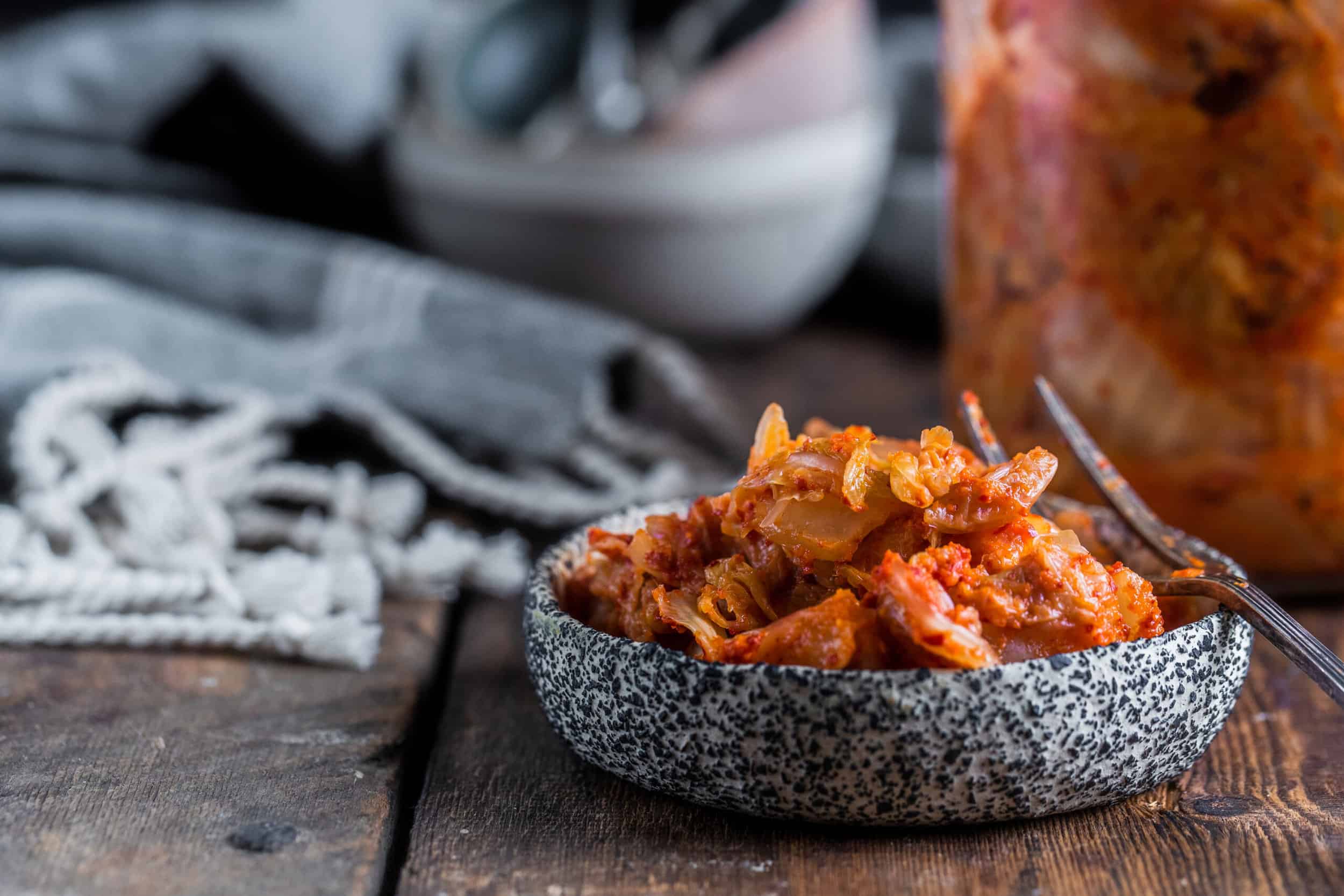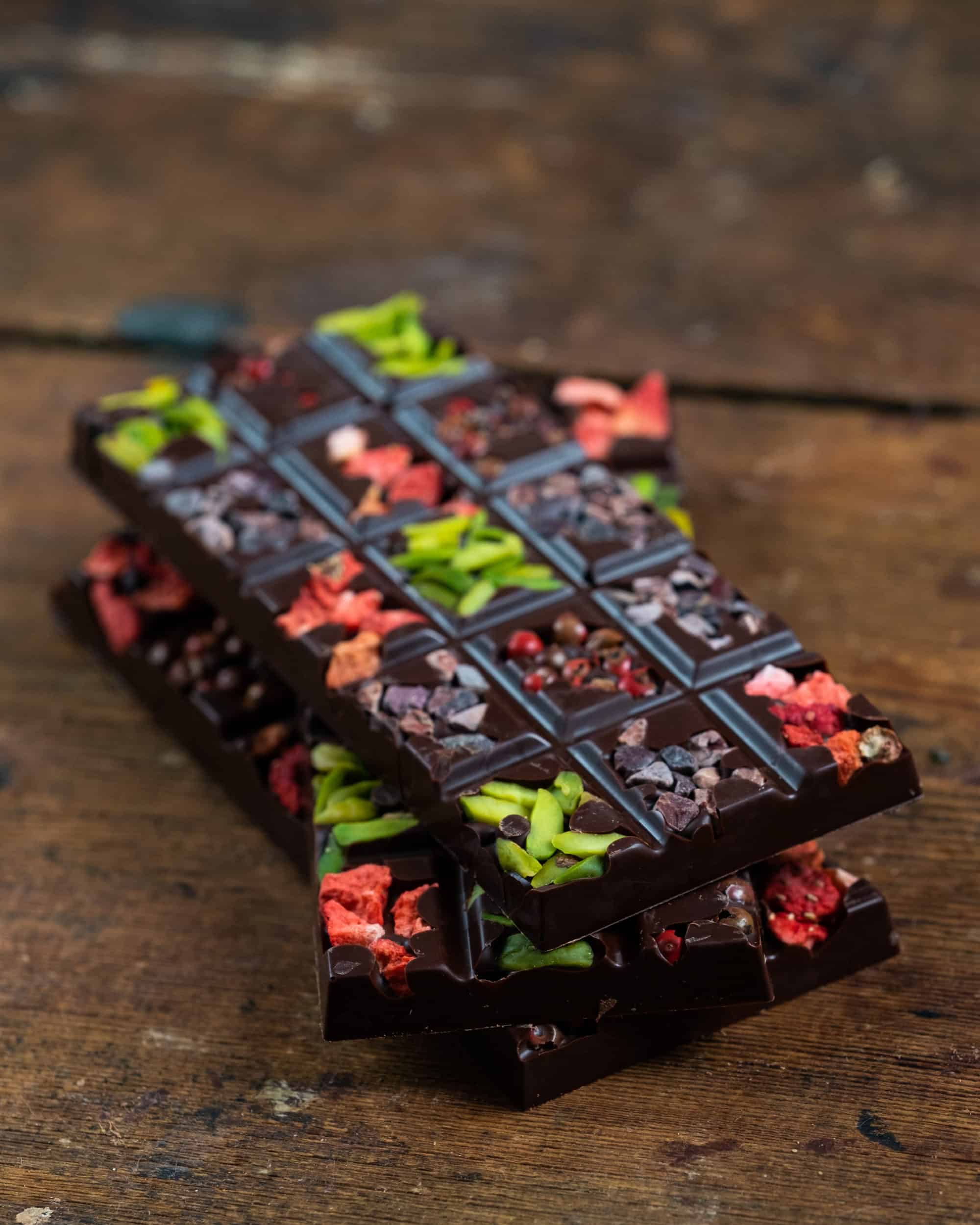
All Levels Welcome
Learn how to make easy ferments at home with no special equipment
Price: £19
Livestream Class Recording
Take Care of Your Gut Health With Probiotic & Nutrient Dense Ferments
Fermentation is one of the oldest methods of preservation, it has been used for centuries in Ancient cultures around the world to preserve foods. Save yourself loads of money by learning how to make simple ferments at home with no special equipment needed.
Want To Improve Your Gut Health and Boost Your Immunity?
Over the past decade or so fermented foods have become very popular and readily available in health food stores and supermarkets the world over. You probably also noticed that they come with a hefty price tag too. They are a challenge to product commercially, but to make them at home for yourself is easy and inexpensive.
The gut has been referred to in recent years as the second brain and, by striving to keep your gut in balance, you keeps the rest of your body, and mind, in good balance also. When our gut balance is off, we can feel it all over our bodies. One can feel lethargic and be more susceptible to illness.
The other bonus of fermentation is that you get to eat delicious foods that have been enjoyed by cultures around the world for centuries. You can make fermentation as easy or complex as you wish, but it’s always best to start with the foundational recipes and move on from there.
In this 1.5hr class I’ll take you through an array of my favourite fermented foods and beverages at the moment.
What you’ll learn…
Ginger Bug
This can be made with ginger, turmeric or galangal and acts as a wonderful starter for all kinds of other ferments we’ll make in this class. You can use ginger bug to start nut cheese, fermented drinks, salsas and more! You can also use it as a base for making fermented soda, I bet the kids will love that and it’s a great way to serve them their daily probiotics.
Beet Kvass
The most traditional method for making kvass is by using sourdough rye bread as the starter, but in this version we bypass grains and use beets. Again, kvass is a super simple ferment and one that can act as a starter for other ferments, like salsa and hot sauce. You can use any colour beet and each one results in a rather different final beverage. If you are avoiding sugars, and trying to increase your healthy bacteria without feeding the bad bacteria, kvass is an excellent choice.
Vegan Kimchi
I think at this point, we have all heard of and tried kimchi. A dish originating in Korea, it’s well loved the world over for it’s crunchy, sour taste and knock your head off spice. But it doesn’t have to knock your head off, that’s another benefit of making it yourself. You have total control over the spice and sourness of the ferment. You can use several types of veggies to make your kimchi; cabbage, chinese leaf cabbage, mooli (daikon) and carrots, just to name a few.
Fermented Hot Sauce
This is one of my all time faves and one that I keep in the house all year round. It can be fermented for a long time without going off or turning too sour. It develops beautifully over time and, when you backslop (use a previous batch as starter in your new batch) the flavour development deepens. It’s truly magic. If you enjoy your hot sauces, you’re going to love this recipe!
Carrot Pickles
I grew up on cucumber pickles, in fact, I’m something of a connoisseur; the salt, the sour, the crunch and those spices! Yum. These carrot pickles are, dare I say, even better. They don’t go soft like cucumbers, they take on all the same flavours and the resulting brine is delicious as a probiotic drink. Add them to salads and wraps to boost the flavour or dip them in hummus for a probiotic-full snack.



